Preventive Health Conference 2024: CAAC CEO Donna Ah Chee on why public health matters
The CEO of the Territory’s largest Aboriginal community controlled health organisation says the biggest strides in Closing the Gap have been in health – but the NT Government nearly blew it up in 2022.
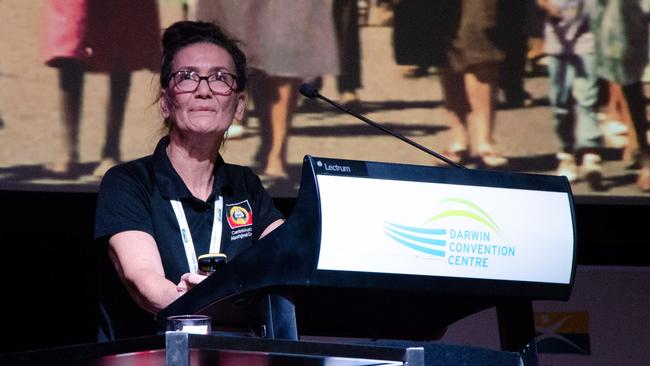
Northern Territory
Don't miss out on the headlines from Northern Territory. Followed categories will be added to My News.
The chief executive of the Territory’s largest Aboriginal community controlled health organisation says the orgy of domestic violence assaults and hospitalisations in Central Australia following the lapse of Stronger Futures shows what a missed opportunity the Voice referendum was.
Donna Ah Chee, CEO of the Central Australian Aboriginal Congress, which turns 50 this year, delivered the keynote Douglas Gordon Oration on Thursday at the conclusion of the three-day Preventive Health Conference 2024 in Darwin.
She said it was the implementation of effective public health strategies in the Northern Territory, rather than revolutions in education and housing, that had secured the greatest victories for Central Australia’s Aboriginal people.
“We can rule out role of the social determinants of access to the health system: education, housing, income and economy, they have not improved,” she said.
“There is increasing poverty and inequality in remote areas.
“There are still only 250 people with bachelor degrees or higher qualifications in the whole of Central Australia from a population of 20,000 people.
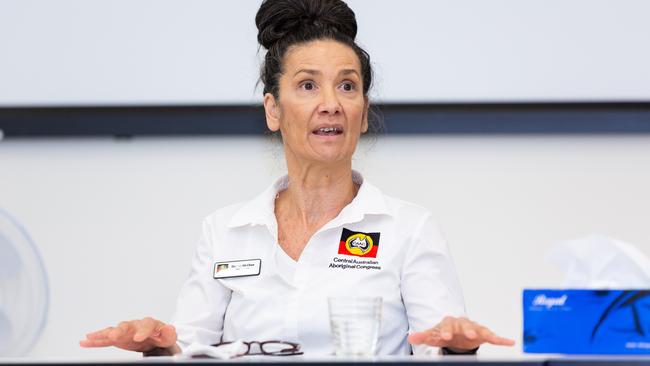
“Housing overcrowding has gone backwards in town and improved slightly in remote communities.”
Ms Ah Chee concluded it was therefore investment in the public health system that had secured gains for Aboriginal people, such as a reduction in infant mortality for Aboriginal Territorians from 90.4 per 1000 births to 12.8, and fewer years of life lost prematurely.
She said there were three epoch defining achievements: better primary health care after the national development of Aboriginal community controlled health organisations in the 1970s and 80s; the election of the Territory first Labor government in 2001 and the huge injection of health funding that followed; and the introduction of alcohol restrictions and non-sniffable Opal fuel.
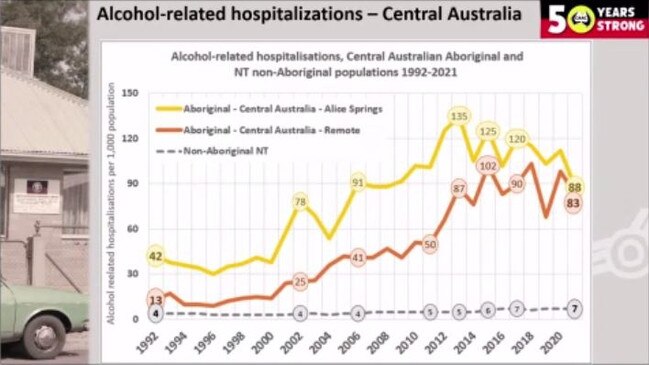
Ms Ah Chee said of these, alcohol policy was the most informative case study.
Alcohol restrictions under Stronger Futures had, by and large, the support of the Aboriginal community and, more importantly, they worked “to the benefit of all Territorians”.
In Central Australia, alcohol related hospitalisations fell from 135 per 1000 Aboriginal people to 88, while there was also a reduction in DV-related assaults.
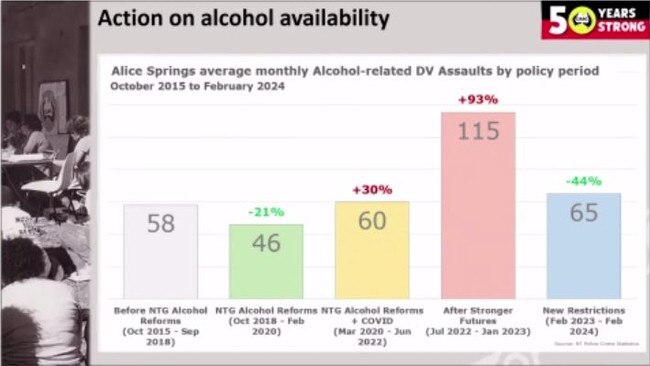
Alcohol policy was given a further boost via new Territory policy such as minimum unit prices on alcohol and the introduction of police auxiliary liquor inspectors in 2018–19: this saw Alice Springs’ monthly DV-related assaults fall to a historic low of 46 per month.
But then, according to Ms Ah Chee, the NT Government made a grievous misstep – allowing Stronger Futures to lapse in July 2022.

“Congress and numerous other voices had warned the result would be a wave of alcohol-related harm in the town,” Ms Ah Chee said.
“This time the NT Government ignored Aboriginal community voices.
“Domestic violence assaults skyrocketed, they increased by 93 per cent, and there were similarly catastrophic rises in assaults, property crime and ED presentations.”
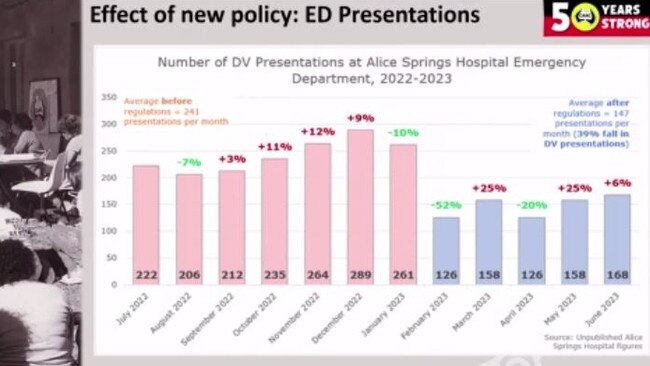
The error, which was partially corrected last year, illustrates what an opportunity the Voice to parliament would have been in allowing Aboriginal voices to have greater input into the decisions that affect them, Ms Ah Chee said.
“The Voice would have improved health for our communities, would have made Australia a fairer and more inclusive nation,” she said.
“Defeat makes the voice of self-determining Aboriginal bodies [such as Congress] more important, not less important.
“More than ever, we need to keep speaking out on behalf of our communities.”





